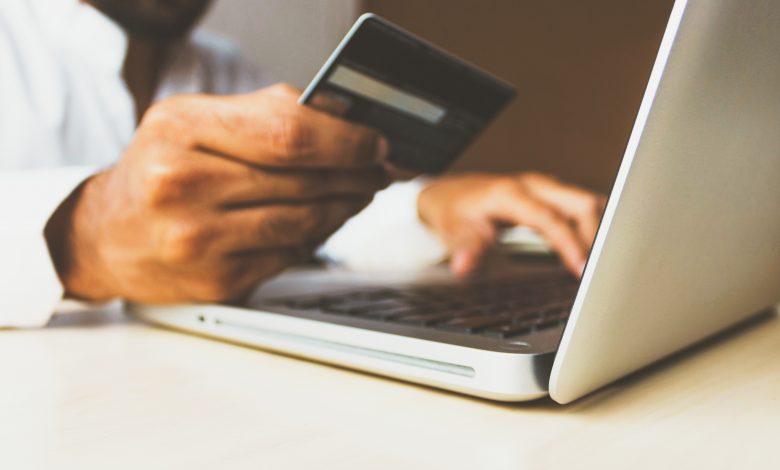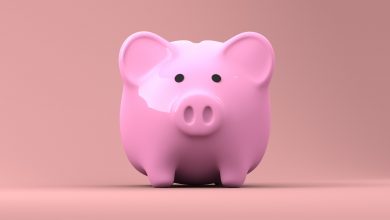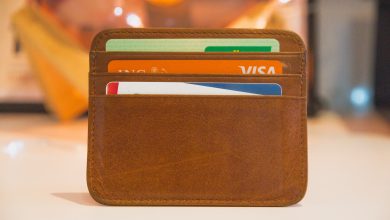Easy Ways to Pay Off Massive Debts

The key to great financial health is to stay on top of your debt and keep it under tight rein. If you have good control of your debt and are staying ahead of it in the right sense, you can be proud of yourself for being in sound financial health. But if you aren’t, you are in the company of a whopping segment of the American population that is staggering under a huge debt burden. Salaries across the country have risen at a fast clip over the past few years, even outpacing cost of living, but still, debt continues to grow at an even faster pace, drowning out the impact of the extra cash available with the average American.
In February 2018, CNBC carried a rather ominous headline announcing that the collective debt of the country had crossed the four trillion dollar mark. The consumer debt of the country has continued to grow at an alarming rate with car loans, credit card spending, and student loans all showing drastic increases over the past few years. A detailed survey in 2019 by NerdWallet brought the following not so pleasant numbers to light:
- In December, credit card balances carried over at month end touched $466.12 billion.
- Over the past five years, credit card debt had soared by about 37%.
- All kinds of debts combined, the average American owes about $137,8879 in a year.
- Student loans account for about $1.50 trillion of the total consumer debt in the country.
- Auto loans come a close second standing at $1.33 trillion out of the $4 trillion in consumer debt.
About 10% of Americans who have credit card debt say that they will be paying it off for over more than a decade. 9% of the surveyed believed that they could never fully pay off their credit card debt.
Debt has affected Americans to such an extent that 37% are putting off having kids because they are not in financially sound health. For about half of the Americans who aren’t parents, it is the costs associated with a child that deter them from having a child.
Evidently, poor financial health and, in particular, massive debt are not problems to be ignored at all. In fact, it would not be wrong to call this an issue of epidemic proportions, given how common it is to find an American who is struggling under the enormous burden of debt, unable to find a way to pay it all off.
The fact is that saving for our golden years is the top priority, but right alongside that comes getting rid of debt by paying it all off. Ironically enough, the first cannot quite be done without achieving the second, simply because huge debts soak up every extra dollar you have and don’t let you save at all. The first step then towards financial security is to eliminate the debt you have. Getting rid of debt completely would be the ideal situation, but if this is impossible, what you need to focus on is paying off the biggest debts, the ones that are eating into your finances in a major way.
Luckily, there are ways to pay off the most massive of debts and become financially secure, and there is more than one thing you can do to improve your debt situation and financial health.
Debt Repayment Strategies You Should Adopt

Credit Card Debt
Let’s talk about credit card debt first because this is one of the most significant debts Americans carry and also one of the biggest debt burdens that the average American may be belaboring under. As per a CNBC report, card rates in 2020 are currently averaging at 17.4%, just down from the peak of 17.85% recorded last in July 2019. Still, credit cards are the most common way for Americans to chalk up more debt to their portfolio. An average American household may be paying out more than $1,000 per year merely by way of interest on credit card debt. That’s $1,000 that’s not giving you any value at all; it is just lining your credit card issuer’s pockets. Imagine how much of your debt you could eliminate with that extra $1,000 if only you did not have credit card dues stacked up.
A Compare Cards study showed that about 35% of cardholders had more debt in the beginning of the year 2020 than they did at the beginning of 2019. This clearly means they have either taken more credit or failed to pay off the debt efficiently during the previous year.
All of this indicates that, when it comes to credit cards, you need a lot of determination and will to bring things under control, but the good news is that with these, you can get a grip on the situation once more. The very first step is to be passionate about cutting down the use of credit cards. If you are the kind to always have a number of credit cards in your wallet, first get rid of all of them. Cut them up so that you don’t keep using them once you have your debt situation under control. If you are apprehensive about being left without money during emergencies, keep just one credit card, but keep it out of reach when you go shopping. Lock it away and use it only when there is an emergency
The second critical step is paying back the debt that has accumulated so far. There are two things to focus on here:
- Check with your credit card issuer about to see if you can get a lower rate. Remember that the issuer would rather get repaid at a slightly lower rate than risk losing all of it. It might be far easier than you think to get the issuer to revisit your interest rate and give you a lowered one. Once you do have lower rates, continue to pay back what you used to before at the higher rate so that, every month, you are steadily reducing accumulated debt.
- Get a balance transfer card with which you can move your high interest debt balance to a new card that offers a 0% introductory APR. If you can manage this, every installment that you pay during the 0% APR period is going entirely towards your principal and not towards interest. That means you are attacking your debt directly and reducing it dramatically. Try your best to pay all of the debt off within the 0% APR period so that you can save big on interest.
Prioritize High Interest Debt
One of the most important things for you to understand before you can start tackling your mountain of debt is how each one of them affects your finances, both current and future. The smart move for you is to first make a comprehensive list of every single debt you have that needs to be paid off. This includes all kinds of debts – student loans, home loans, and credit card debt. Anything that you have to pay off goes on this list.
Once you have a clear picture of exactly how much you owe, you know the magnitude of the task ahead of you. That helps you get serious about the job at hand. Having a clear figure in hand also makes the task seem more achievable because now it’s not a looming undefined disaster that you should fear; you know exactly the size of your problem.
With your list of debts in hand, you are ready to take the next step: figuring out how to tackle them all. The first step here is to make a list of debt priority wise, organizing it by what you want to pay off first. Here is where smart thinking pays off handsomely and helps you reduce your debts quickly. Start by marking out the debts that are most expensive for you – the ones that carry the highest interest rates.
For example, say you have two loans – A and B, both for the same amount but charged at different rates. To pay off loan A, you shell out a monthly installment that is $20 more than what you pay for loan B. This means, every month, you are paying an extra $20. Target Loan A first, and repay it as soon as possible by making bigger repayments so that this extra payment can be avoided as soon as possible. With Loan A repaid, you are no longer frittering away your hard-earned money in interest instead of using it to pay off another loan. So the rule is, pay off the most expensive loans first and work down the list of debts in that order.

Establish a Second Line of Income
That’s easier said than done and no one has a treasure chest waiting to be found. However, finding a way to make extra money may not really be that difficult either. Especially if you have skills that let you work online. Maybe you are good at graphic design or writing. Then, you can take up small projects and make some extra money by working out of your home after work hours.
If that’s not your cup of tea, then how about doing some extra jobs around the neighborhood? Maybe some babysitting, tutoring, dog walking, or literally anything that pays you hard cash are all good. If that’s not going to be enough and your debt burden is too big, then look for a second job and create a whole second line of income that fully goes towards paying off your debts. Remember that every dollar you earn extra is a dollar of debt you have eliminated, and that comes with a huge bonus. Every dollar of debt you eliminate also takes away the burden of paying interest on that dollar from your head. That’s a double benefit for which working extra hard is totally worth it.
Keep this in mind to persuade you to take up that extra job. Only when you get rid of debt can you begin to save. Only when you save can you think of a happy retired life. With extra work today, eliminating debt is ensuring you a peaceful, independent retirement life.
Once you have paid off your debts, continue your second line of income so that you can build your nest egg for the golden years really quickly. With enough saved away, you will be financially secure in the truest sense of the word.
Working a second job is not the only thing you can think of though. If you have too many debts and you are desperate to pay off some really big ones that are eating into your income, consider selling things off to make money that can be used to eliminate the debt. Hold a garage sale, and use all of the proceeds towards debt elimination.
If you have a house that is bigger than you can manage with, put a portion of it to good use by letting it out. That’s a good chunk of income for you month after month. You might not even need to invest too much in sprucing it up for renting out. Just do the painting DIY to save money, call in friends to help you clear the space, and make it good enough to live or work in.
Cut Down Costs
If you put your mind to work, you can trim your monthly bills by quite a dramatic amount – much more than you think you can. Taking more care about your grocery bills, turning off the lights and the air conditioning when you are not in the room, and other small things may seem to be too small, but these savings can add up fast and free up some money that can be used to pay off your debts. In the long run, these habits ensure that you are not frittering away your money and letting it go to waste as well.
One of the best ways to cut down costs is to change the way you commute. Fuel costs can be a whopping contributor to your monthly expenses, and cutting down here can give you some major savings. See if you can walk to work, school, or to do your grocery shopping. In short, avoid taking the vehicle out whenever you can do so. If your workplace is too far to walk to, see if you can car pool with someone who will share costs with you, or take just the one car out and use the same to drop off your spouse at the workplace before you head on to yours, just saving on fuel for two cars. This will work wonders on your monthly bills, especially if you both travel pretty much along the same route to get to work. If you are thinking of buying a car, go for a used one to cut down the bills dramatically rather than opting for a brand new one.
Another very important area to focus upon to cut down expenditure is your weekly eating out and entertainment. While you may already be limiting your entertainment drastically since you are going through a cash crunch, eating out is still not something most people even think about when it comes to cost cutting. This makes up a massive chunk of your monthly bills though. Dispassionately eliminate all of your eating out, and choose to either make food at home beforehand if you leave for work early or go for foods that can be easily made in a jiffy.
If you have a mountain of debt that you are trying to tackle, then a focused, determined approach is the very first tool you need in your arsenal. Once you have that, the rest of the journey becomes easier than you think. Start by figuring out how much debt you have in all, and then, work through it without losing heart. Before you know it, you will be debt free and also have a much more sustainable financial lifestyle that will help you avoid falling into the debt trap yet again. As a result, you are better equipped than before to save up a nest egg that you can use for emergencies that may crop up and for your retired life.



